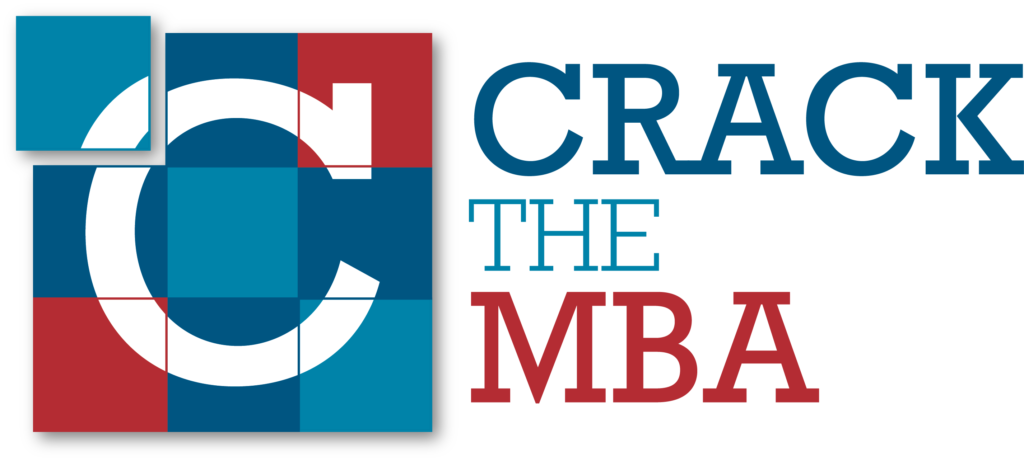We return after a sabbatical to chronicle Deba’s journey at Chicago Booth. For those of you who have not yet read Part 1 or are looking to refresh your memory, you can read about it here.
Now that we know how exciting Deba’s journey to get into Booth has been, we can’t wait to write about her experiences during the MBA program.
First Experience (also Most Memorable Experience)
What was her first experience with her classmates? Was it soaking in the lovely Chicago summer by Millennium Park?
Actually no. Her first memory is from riding a camel by the Pyramids in Cairo, Egypt with 10 classmates and 4 second-years.
Puzzled? We were too.

Random Walk to Alaska
Deba patiently explained, Chicago Booth has an immense focus on forging collaborative bonds amongst classmates through ‘Random Walks’ wherein 10-12 first year students go on a 10-day trip (led by 2-4 second year students). The travel is purely social and as Deba confesses, “some of the closest friends I made at business school have been through my Random Walk to Egypt”. Additionally, it is a plus to come back to school and have a few familiar faces to bond with without the monotony of going through the drill of “what did you do before you came to school”? To read more about Random Walks, click here.
Favorite Class
Deba had no hesitation in naming the LEAD program as her favorite class at Chicago Booth. She professes that it helped her become more self-aware about her leadership style in a team setting. She was grouped with six other classmates and they participated in team activities such as ropes courses. Over the course of the next 10 weeks, she was able to observe how at times there was communication gap within the team. She realized that if other people were being loud, she would tend to become quieter about expressing her opinions (even though at the end it turned out that what she was thinking was actually a better way of problem solving). She also saw how the team dynamic transformed through communication. Deba has no qualms about stating that she does not recollect much theoretical content from her classes but these softer skills acquired during LEAD have continued to stay with her and have been useful, not just in the two years at school, but also beyond.
Favorite Professor – James E. Shrager
Professor Shrager (bio here) teaches the popular “New Venture Strategy” class where he distills lessons from entrepreneurs who started companies and failed. This class has a focus on analytical rigor to provide students a toolkit to make better decisions on new ventures. The class is popular with students and can be competitive to get into. Deba enjoyed the focus on tools and analytical rigor as it differentiated the class from lecture-based methods.
Getting the classes you want
Speaking of popular classes, we wondered how Chicago Booth ensures students can get the courses they want. Deba explains Chicago Booth has a bidding system called iBid (no connection to Apple) to provide a match between demand and supply for classes. This is an advanced online system that allows students to drop and add courses in exchange for points. You start out with 8,000 points and get 2,000 points back for successful completion of every class. The number of points that courses cost depends on their popularity. This system forces people to make choices in their course curriculum and ensures not everyone is bidding for all the same classes.
Through some planning, Deba was able to take most of the classes she wanted to take. Coming into Booth she knew she wanted to take Professor Raghuram Raju’s class and would need to save a lot of points. She planned, made some sacrifices along the way and was able to snag the Saturday section of Professor Raju’s class in her last quarter. She also remembers a friend who wanted to take Professor Taylor’s class on Behavioral Economics but could never amass the 30,000 points that the class cost. Deba is quick to point out that this system is effective as it forces you to make choices and decisions, an important learning as a future business leader.
Clubs & Activities
Deba was involved with three clubs – Corporate Finance Club (CFC), South Asia Business Club (SABC) and Women in Business Club. As Co-Chair of the CFC, she organized seminars that were attended by companies recruiting for corporate finance roles. These helped provide recruiting opportunities to her classmates.
As member of SABC, the events that she enjoyed most were bhangra parties and the India Leadership Summit. The summit is a day-long conference sponsored by Tata and attended by c. 300 people. Business leaders from India and abroad come together to speak about trends, future and policy issues.
The women in business club helped Deba learn from women who have broken the glass ceiling in the upper echelons and navigated male-dominated jobs – in corporates, consulting, banking and beyond.
Deba’s Advice
Prospective Applicants: Apply only if you are passionate as you will get it only when you REALLY, REALLY want it. Business school is a lot of work, and it is not always fun.
Admitted Students: Strike a balance between recruiting for jobs, classes, socializing and networking. It can be easy to overlook academics due to the grade non-disclosure policy followed by Chicago Booth. You can read more about the policy here. Network as much as possible as that has the longest lasting effect. She remembers asking the CFO of Mattel during her summer internship about his favorite classes. He said, “I don’t remember what classes I took; it’s my friendships that have stood the test of time”.
Travels
Deba traveled to Egypt, London and Turkey during b-school. She says her travels would be on the lower end of the spectrum compared to her classmates. Some people organized small group trips to their home countries. As an example, a classmate from Columbia organized a trip to his native village where his family was a major land-owner and it was a great way for many of her classmates to experience a different country and the family-centric environment in his hometown.
Booth Alumni Network in India
Since Deba is a business school alum who moved back to India immediately after graduation, we were curious about the Booth alumni network in India. Deba says Booth has a vibrant network and the alumni association organizes events on a regular basis.
There is also a Pan-India Booth Retreat that takes place annually. Last year (2012), it took place in Noida (close to Delhi). This was attended by prominent alumni and was a full-weekend affair. While Deba was unable to attend herself due to schedule conflict with Durga Puja in Calcutta, couple of her classmates attended the event.
She also keeps in touch with Chicago Booth classmates and news about the school through google groups and emails. There are inter-school happy hours in Mumbai (her location as of this writing) where she gets to meet people. At one of the events in August, there were 20 alumni going back all the way to 2001. Her general sense is that there is a greater influx of graduates to India, compared to a few years earlier therefore the network is expanding.
Today, we have learnt about how Deba’s exciting journey at Chicago Booth. Do join us to read about her job-related experiences at Booth and in her full-time job as part of the Leadership Development Program with Johnson & Johnson in Mumbai, India.






